Text
Trans Women and Liminality
There is a stark cognitive dissonance regarding the perception of transgender women in this world. Across cultures, they are simultaneously regarded as spiritual guides and reviled as unnatural frauds. Since ancient times, trans women have held the statuses of leaders and priestesses, known for inhabiting a physical and spiritual liminal space. In Native Cultures, the transfeminine was a sacred occupier, one that was almost center in the way the tribe lived. These two spirit transfeminine individuals were able to partake in war and live domestically in their homes where they carried out household duties.
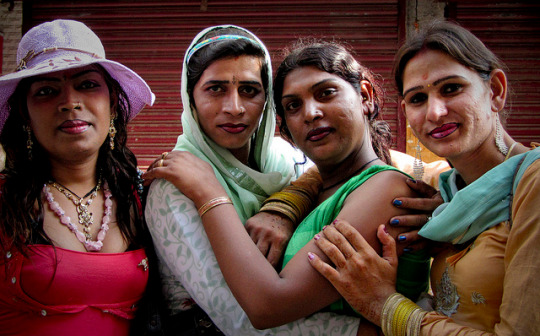
Another similar concept is Hijras, transfeminine individuals that reside in parts of South Asia. Their history has largely contained well-known roles within subcontinental cultures, part gender-liminal, part spiritual and part survival. Their communities are very organized and specific; however, there is a deep resentment by those who are not part of these communities. They are shunned in the public city streets, beggers for money as there is no job position available for them. Hijras take in sheltered boys who, too, suffer the repercussions of a consuming poverty. With no other jobs available in the market, majority of Hijras engage in sex work as a means of survival.
Trans women in the West are more different. There is a certain “illusion” that is bestowed on many trans folk, specifically trans women who are said to be imitating a barred womanhood. The West implodes a rapid and dangerous homophobic and transphobic culture that shames men who might just fall in love with a trans women. These shames are often internalized and it is exerted through violence, often times leaving a trans woman in harm for her life. In anthropology, liminality is the quality of ambiguity or disorientation that occurs in the middle stage of rituals, when participants no longer hold their pre-ritual status but have not yet begun the transition to the status they will hold when the ritual is complete. During a ritual’s criminal stage, participants “stand at the threshold” between their previous way of structuring their identity, time or community, and a new way, which the ritual establishes. It is a gray area that many trans women find safety. There is a pride that is inherent with their womanhood and it relishes them with empowerment as they lie in a crossroads where their beauty is viewed as an unmarked rebellion.
0 notes
Text
Gender Bias in Leadership and Bussienss
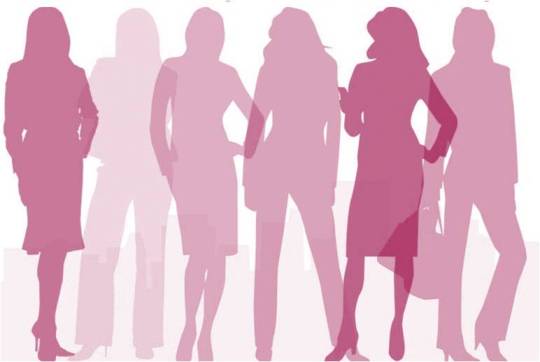
There is pervasive sexism tangled within perceptions of women leaderships. For example, Jamie Chin wrote an interesting article called “Women and Leadership,” which she makes the comment that women leaders were often evaluated lesser than their men counterparts despite performing the same actions. It is clear these social perceptions are only beneficial to keep white men in power while harming the standards and capabilities of underrepresented people. Due to white men occupying the majority of positions of power, studies tend weigh their effectiveness as a leader with higher worth. A woman leader, on the other hand, has not only been rare but when women do come into power their entire person hood is often debated such as what they choose to wear or how they carry themselves by the way they communicate on public platforms. This scrutinized criteria is very seldom applied to white men and so, having this keen gender bias limits the the visibility of women in those higher positions. Also, unfair standards always discourage those most disadvantaged from pursuing certain distinctions. Another example of gender bias is the inaccurate generalizations of why women choose to opt out of their current work position. Another article, “Rethink What You Think About High Achieving Women,” goes into detail that the women surveyed were not opting out because of their families, in fact fewer than 10% left their work due to family related matters. The greater 70% left due to their jobs not be satisfying enough and feel their is no possibility of advancement so many of them find jobs somewhere else. The study also revealed this incorrect notion of women not valuing their careers is still prevalent. Overwhelming percentages on both sides believe women leave in order to be completely devoted to motherhood. These biases prevent women from getting the most out of their careers as many of them are left disappointed when they don’t get enough opportunities as their male co-workers. Of course this subsides an overwhelming setback on our industries because women are not getting enough representation in these companies or at least an opportunity to succeed. Social perceptions play a very big role in both of these biases and it leaves women discouraged to move out of their vicinity and go beyond expectations. Not having enough women in distinct roles hinders the condition of equality and possibly jeopardize and prevent women from gaining state rights.
0 notes
Text
Pepsi Fizzles
Clearly there is no surprise that Pepsi crafted an utter failure of an ad. In fact, this tone-deaf ad is one of the worst whitewashed narratives to surface, especially in these recent turbulent times. Multinational corporations, like Pepsi, Coca Cola, and many more, capitalize off the struggles of marginalized folx when they partake in the same structures that oppresses them. Capitalistic participators are well aware of the exploitation of people of color, women, trans people, etc that goes into the making of their business. The new trend of these corporations is to appeal to a critical mass and put this faux persona of “wokeness” that will gather in more sales from millennials. The problem is, everyone can see through the transparency. This has been proven rather CLEARLY in the Pepsi Ad. You have a rich white girl witness a protest who suddenly joins once she sees an attractive man and then proceeds to take off her poorly mannered blonde wig and hands it to a black woman who is standing on the sidelines. From there, gets even worse. This dramatized protest isn’t even a “protest” more like some cheap stock image you find when you search “peace” in the google search bar. There is no vivid resistance images and that is done purposely because these corporations are not radical enough to embrace it but too liberal to stay “silent.” The outcome was a whiewashed event of an earlier scene of a black woman approaching the police during a BLM protest. This image became viral because of the steep contrast of the woman, who wore a beautiful and flowy summer dress, to a huddle of policemen decked in bulletproof vests and guns. In the ad, instead of a black woman in a flower dress, it is Kendall Jenner handing a Pepsi to a police officer who is blocking the protest. The ad ends with “unity” but truly, unity has become more fragmented than ever. To reduce the struggles of black folk to a can of soda is rather insulting. While the memes that came after were hilarious, there is also just plain disgust for the failed attempt of the company. Since removed, Pepsi is working themselves to re-brand and work around potential Coca Cola insults. However, none of these companies are any good or work toward our liberation. They are simply corporations: empires who strive to get a buck for every purchase.

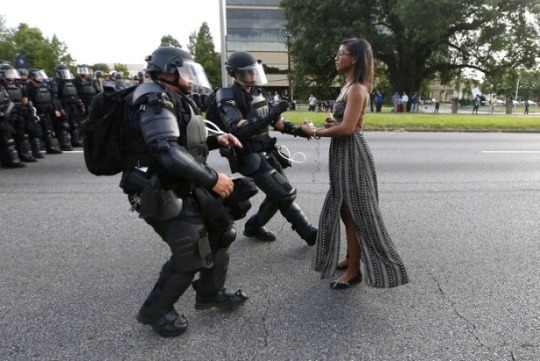
0 notes
Text
Author Kai Cheng Shatters the Literary Glass Ceiling
Young Adult novels have always been the same: boy meets peculiar girl who needs validation from said boy, a romance boils in the most Earth crushing events and they either fall in love and buy a dog or one of them dies. It is the same ‘awkward’ trope that does nothing for queer folx who need a little more substance than some washed out love story. Enter: Kai Cheng. She is a trans woman of color who is hoping to defeat that narrative once and for all. Her first novel, Fierce Femmes and Notorious Liars: A Dangerous Trans Girl’s Confabulous Memoir, tells the raveling coming of age story of a young trans girl of Chinese descent that is exiled from her own home. She somehow stumbles and meets the Lipstick Lacerators, a vigilante gang composed of all trans women who beat up cis men as revenge of their fallen sisters. There is a complexity to this book, its not just some novel focusing on being born in the wrong body and then finally assimilating into a cis-passing happy life. In fact, many trans women accept they will never be cis-passing and even if they do, many of them struggle with happiness because the system is always working against them and other femmes. Kai Cheng shows a different side of the coin, a more realistic side but with a flavored punch of that young adult goodness. Representation is essential and there needs to be more visiblity of trans women authors who write novels with trans women in the center. This gritty alternative anti-heroine narrative is exactly what we need more of and less of the repetitive love stories concerning only cisgender people.
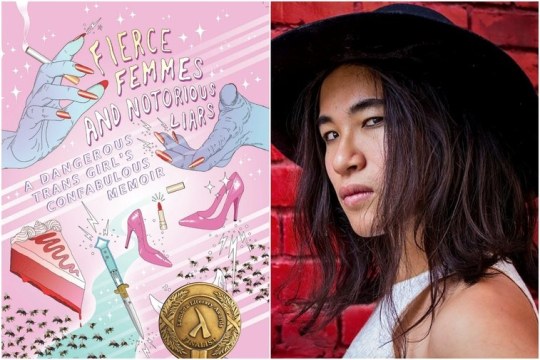
0 notes
Text
Natural Body Hair & Perceptions
Women and femmes on social media have been raving natural body positivity that showcase armpit hair, leg hair, and mustaches. The goal was to desexualize the women body while also appreciating it as natural and affirm women can have body hairs just like their men counterparts. However, the response has been overwhelmingly split. Not surprisingly, men have degraded these women and shot them with insults, such as “gross” or “women should be hairless.” It is unrealistic expectations like this that gave birth to the recent surge on twitter. What is most interesting is that majority of the participants were black women unlike white women who have always been the visible faces of the natural body hair movement. The derogatory comments definitely transcended into misogynoir territory, leaving many feminists to engage in thinkpieces. It is obvious that all women are denied to fully relish in their natural bodies and embrace natural bodily function; however, there is a disproportionate denial between white women and women of color. There are certain occasions where the white woman’s body is sanctioned to embrace their natural body while women of color are more scrutinized because of colonial imagery surrounding their bodies. Meaning, there is a lot of stereotypes involving women of color who have body hair to be “dirty” or become highly masculinized. It as if this perception of cleanliness is still heavily attached to white skin, especially the white woman body which has colonially be rendered as “purified” and “angelic.” It is quite clear that within the Natural Body Hair Movement there needs to be a discussion of an intersectional agenda and how to work towards dismantling the male gaze, specifically in regards to bodies of women of color
0 notes
Text
Why Chimamanda Ngozi Adichie’s Feminism is Dangerous
Chimamanda has been a very prolific pioneer in the fourth wave of feminism and her words have even appeared in Beyonce’s Flawless, a feminist driven anthem by the pop singer. However, she has received backlash from a recent interview by suggesting trans women as not real women. She says that because transwomen were once culturally conditioned as men up until they decide to transition, that their experiences as “women” are not congruent with the experiences of women who were women for their entire life.

“I think the whole problem of gender in the world is about our experiences,” she said. “It’s not about how we wear our hair or whether we have a vagina or a penis. It’s about how the world treats us.”
However, this ideology is not only antithetical to feminism but it shows how the workings of misogyny and transphobia interact with each other. Transwomen do not have to fully transition to be considered valid enough for the gender they prescribe themselves as. To say they have privileges as men is outlandish because many transwomen have always presented themselves feminine, even prior to their transitions. This has always put them in vulnerable spots for violence because to society, the only sanctioned femininity are ones performed by cis-women and cis-women only. Ngozi is unaware of how cisgender hegemony has devastated the trans community, especially in regards to transwomen. In fact, to say “transwomen are transwomen” shows that transwomen will never be valid enough to be considered as just women in the eyes of their cisgender counterparts. Likewise, the experiences of women are not monolithic and Ngozi’s statements disregard intersectionality and how parts of a woman’s identity influences her womanhood and her experiences of womanhood. It is important to include transwomen in the feminist movement as well as regard transwomen as women. Also, it is important to acknowledge ciswomen who do not see transwomen anything more than just transwomen should not be touted as feminists.
0 notes
Text
Valentine’s Day
As you may know, Valentine’s Day is just around the corner, which means endless amounts of roses and chocolate flying through the air. Now, I was never a fan of Valentine’s Day just because how commercial and flaky it is in its nature. Truly, the whole holiday is dependent on advertisement, heternormativity, and the influx of consumers. While there is more visibility of LGBTQ+ couples, there has not been enough visibility in the eye of VDAY advertisement except recently when LUSH put out two ads featuring same sex couples (you can see here: http://www.businessinsider.com/lush-releases-valentines-day-ads-featuring-same-sex-couples-2017-1) . Needless to say, this fostered a lot of backlash to the company, only proving for the hundredth time that homophobia isn’t really dead. As a single person, Valentine’s Day doesn’t bother me because its just some commercialized Halmark holiday but what does bother me is this shaming to LGBTQ+ love that is often masked by major companies, the same companies that market off the community as faux-allyship yet never take the strides to be inclusive.
0 notes
Text
Pop Star Discourse (bring it on)
As we all know, Lady Gaga took the stage for the Superbowl Halftime Show and stunned us in more ways than one (whether good or bad, we will find out). While the performance was good in the sense that Lady Gaga knows exactly how to put on a performance, there is a bit of tension of a missed opportunity. Yes, everyone was prepared for the LGBTQ+ identifying singer to come forth and spew Anti-Trump propaganda and declare America the inclusive melting pot that it is--but almost all were left disappointed. Lady Gaga kept it safe, singing a medley of her greatest hits and successfully kept a word about Trump under wraps. To many fans and spectators, it would have been a fulfilling opportunity for Gaga to say how it is given that she’s been actively against the Trump Administration. It brought up many questions such as, should we push celebrities and public figures out of the apolitical zone? Are these expectations even realistic? Did lady gaga have the best halftime show of all time?
Well, let’s get digging.
Celebrities are notorious for staying out of the mess that is known to be politics. The greater half of musicians, actresses, and so on have kept their opinions silent whether by intention or for good press. However, with a fascist in office the apolitical card is becoming less and less accessible also a method of passive violence of marginalized people who will face the greatest exertion of the administration. Taylor Swift is very popularized for remaining apolitical and many assume it is because of the saturation of fans who are Trump Supporters and losing sales is quite not on her agenda. But one begs to question if success is more important than human rights. She remains very silent, imbuing only bare minimums to seem socially engaged when she is really out of touch. Given the political climate, it is necessary for all of us to stay politically active and make our agendas well known. In regards to Gaga, yes I do think she missed on a great opportunity to make some type of statement. However, I am also aware of the countless threats given by NRA and other conservative groups that would proceed Gaga if she did choose that route. While safety is always a priority, the Superbowl is one of the most watched events of the year and it makes the perfect depot to make any statement of choice. Now, some say her performance was political, given that she sung “Your Land is My Land” and the LGBTQ+ anthem that is “Born This Way.” While the former was definitely intended to make mark of the immigration policies recently stated into law, “Your Land is My Land” is a historical song documenting liberal colonialism of native lands. It is by far what we want to include in the agenda. Also, not to be nit-picky but “Born This Way” isn’t the most political song out there when the song relies heavily on biological essentialist rhetoric.
But does Gaga even know this? Maybe not--probably not because we have to think rather realistic when it comes to celebrities. We hope for them to be as educated as us but their luxurious and privileged lifestyles tend to be a barrier to understand the working class marginalized citizens of the state. So to be clear, her performance wasn’t political but it was political in the sense of her own. Yes, I’m sure Gaga intended to throw in hidden “politicizations” and put an emphasis on inclusivity. But I won’t give her the mighty pat on the back. Listen, we need to be more critical of these celebrities, pop stars, etc. because in times of a tensed political climate we need them to be by our side--not for some of the time but all the time.
Now, to answer the most heated question: personally, I think her performance ranks in about the top 10 of Superbowl Half Time Shows of all time. Not quite a Jackson but not a Coldplay either (let’s face it, the best part about that show was Beyonce).
I do, however, want to thank Lady Gaga for blessing us with this now classic gif:

0 notes
Text
Hypervisibility vs Invisibility
Marginalized communities are structured differently and within certain specific intercommunities, groups tend to fall in either hypervisibility or invisibility categories.
Hypervisibility is a type of scrutiny on a perceived difference, which is usually misinterpreted as a deviance. For example, black bodies are criminalized by the state who thrive on corruption by drugs or reckless sex life. Specifically, black boys are processed as criminals before even entering adulthood, who potentially are just thugs waiting to rob a gas station. People would assume having an overshared of attention would be a good thing but with hypervisibility comes the constant gaze of individuals that dispose their judgement, mostly in a negative way. With hypervisibility usually comes surveillance.
Invisibility acts in reverse. To be invisible is people around you not necessarily invalidating your experiences but not including you in the conversation. People may assume you’re better off since you don’t face the constant scrutiny of other bodies but to be invisible is a growing exclusion that can take tolls on mental health. For example, the media is very in line with showcasing more bodies than others. In film, there is many dramatizations on white family households, romantic comedies mostly focused on monosexual folx and etc. Film is are main curator for our experiences and when it shuns certain narratives, we face the possibility of being invisible to discussions around us. Many Asian Americans fit this context. There has been endless instances of films accessorizing Asian traditions and turning it into an action packed blockbuster but with the lack of Asian bodies, such as the Great Wall and Ghost Shell which are two movies starring white actors. The Academy has failed to give much attention to either Asian actors and musicians and while it is hard to digest given the immense creativity in this particular community, it is a reality understood by most.
So to either be hypervisible or invisible? There is no better option, both have negative consequences and are mere conduits to the continuation of silencing among marginalized communities.
0 notes
Text
Self Care Tips
Activism takes a lot of energy, both physically and mentally. Any person embarking on routes to be an activist should practice methods of self care. By definition, self care are activities meant to help marginalized folx to decompress. Activities such as walking the dog or sleeping past 10 are all examples of self care. Activists who spend hours organizing and dealing with repercussions of protesting i.e. police interference or counter protesters, need to ensure the stability of their mental health. It can become straining to stand hours in the street with messages of anti-nationalism and anti-fascist rhetoric written on leftover box pieces. Also, day-to-day oppression can keep us disenfranchised and dissociated from the events happening around us. So, here are so mindful self care tips:
1. If you need to leave social media--thats OK
Social media platforms have become hubs for “trolls” (most of which are seeping white nationalists with nothing else better to do) and the verbal harassment can take a toll on our mental health. Also, constantly explaining your oppression to people with privilege takes A LOT of emotional labor. If you need to disengage with twitter, facebook, ig etc. then its alright. It can become too investing of our personal time and there’s alot of baggage with being public about social issues.
2. Know Your Limits
Being activists who are also college students who are ALSO working class citizens can be a difficult combo for time management. It is important to know when you are at over capacity. If you feel like you can’t go to a specific event just say no especially if it is not mandatory on your part. Having a very spaced schedule can leave you at ease and feel less frantic. If you can handle a three class schedule, a sit in protest, and four hours of homework then by all means, go for it. But if you are like most of us who can’t seem to juggle everything at once then it is okay to cut the things you can’t do in a day.
3. STAY AWAY FROM THE NEWS
News outlets are reservoirs of fear propaganda and with a Trump presidency, there is not much changing from the status quo. The fear of a new executive order that could possibly strip you of your rights can be an anxious feeling to hold over your head so maybe taking a break from the news by deleting your apps, muting CNN, or whatever can be in your favor. Not to mention news has become increasingly bipartisan, there is no use to it anyway.
4. Clean your Friend’s List (both on FB and in real life)
Finding people who are on your level of conscious awareness is difficult. Not all of us have the accessibility to certain information and our experiences tend to be sharper by the day but there is a fine line of just dropping people who either invalidate your experiences or thinks you don’t deserve rights in the most vague and implicit way possible. Make it aware to them that the agree to disagree is not the appropriate statement to use when discussing racism, sexism, homophobia etc because we aren’t talking about our favorite musicians no, we are talking about our human value in society. Also, remember that is not your duty to educate especially when its draining as a marginalized person to sit all day and discuss the faults of their oppressors. That’s why features like “unfriend” and “block” are so convenient. If they happen to be in real life friends then just make it clear: “I don’t want to be your friend anymore because you are racist.” It should be quite clear after that.
In the long run, shrinking a friend group to those who will be there for you in times of political unrest and emotional damage are the ones to maintain.
5. Maybe Parties aren’t the best
I know we all love to let loose with friends and get mildly intoxicated but falling back onto this type of atmosphere may be more toxic than good. Falling back on alcohol can release more of a bitter taste of loneliness and even trigger an anxiety attack for those who have anxiety disorders. From personal experience, using parties as a relief stabilizer did not leave me stable. In fact, I left the party crying into a bottle of Rosé. The aftermath was the least bit pleasant.
But every individual is different so by no means am I being anti-party. However, I recommend to go to parties for the enjoyment and not as a means to self deconstruct.
0 notes
Text
“The Women’s March wasn’t for Me”
This past weekend, a historic 2.5 million Americans protested across the United States and even more across the globe. It was quite a spectacle to witness the biggest mass protest to take place in our country, but I can’t help to simmer down the bitter lump in my throat. While the march chronicled important concepts and a leap forward for women’s rights, it certainly didn’t mark the historic altitude matched by its audience. Spaces had to be carved out from an event meant to be the pinnacle for the fight of inclusive politics. Trans women were microaggressively antagonized with cissexist signs, such as “if you don’t got a vagina, stay out of mine!” and the infamous, “pussy power!”

While these may have not been the sole intentions, equating the singular womanhood experience to genitals is exclusionary and unfair. Raquel Wills, a prolific trans activist, was cut short of her speech to allow enough time for actress, Scarlett Johansson, and it became clear to the transfemme community that the march wasn’t for us. Now, I do think it is important for cis women to exercise and be vocal of the bodily functions oppressed by the greater half of society. Being unapologetic about having periods and fighting for reproductive rights are important but it is very tricky to demonstrate this without being blatantly cissexist. Reducing women to just their genitals and an identity separate from their gender is very harmful and makes a lot of us feel uncomfortable so please refrain from anti-dick rhetoric!
If anything, this event was more so of a Pussy March than a Women’s March. So for next time, remember: support your sisters not your cis-sisters
0 notes
Text
Queering Style
The performativity of the queer identity has always relied on sartorial presentation. Through avant-garde to vegan leather, the queer community has created the central heart of what now presumes as high fashion. Although, not always accepted from a mainstream arena, they continue to be the muses and the designers of high fashion houses, such as Prada and Yves Saint Laurent. However, there has been a stronger threshold for thrifting. It is no surprise the growing fraction of queer folk come for low class backgrounds, many of them relying on the cheap cost of clothes. As a result, many styles were created and gave birth to now what is called “hipster” or “vintage.” This style mostly came from the backs of queer femmes, specifically lesbians who earthed the boyfriend jeans, cargo pants, and heavy garden boots. To femmes alike, this style gave a beacon of queerness to connect with other queer femmes in a society where their identity was disenfranchised.
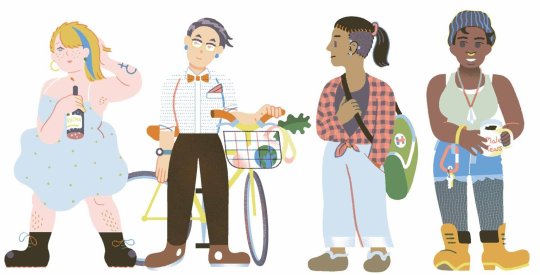
As fashion became malleable, the hipster style was appropriated a hundred times over and continues to be by straight-cis individuals. What’s the big deal, though? The deal is gay culture has proven to be the underlining of a modern American culture only severed for its lingo, dance moves for pop stars like Madonna, and inspos of fashion while the fashion itself is geared toward a upper-upper class white consumerism. Not to mention, the gentrification of thrifting has increased prices at Goodwill and other thrift retailers which now only makes it harder for trans women to gather accessible clothing. Other queer people of color find rich and other endowed people appropriating the “poor aesthetic” to be insulting the real struggles of queering in America. Femmes most importantly, suffer a culture they created strip right from their heads without a second glance.
1 note
·
View note